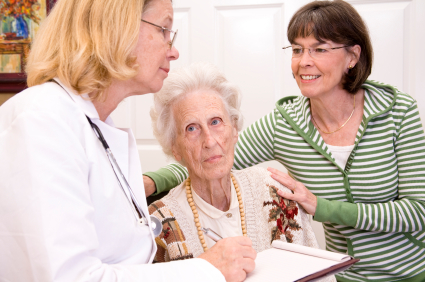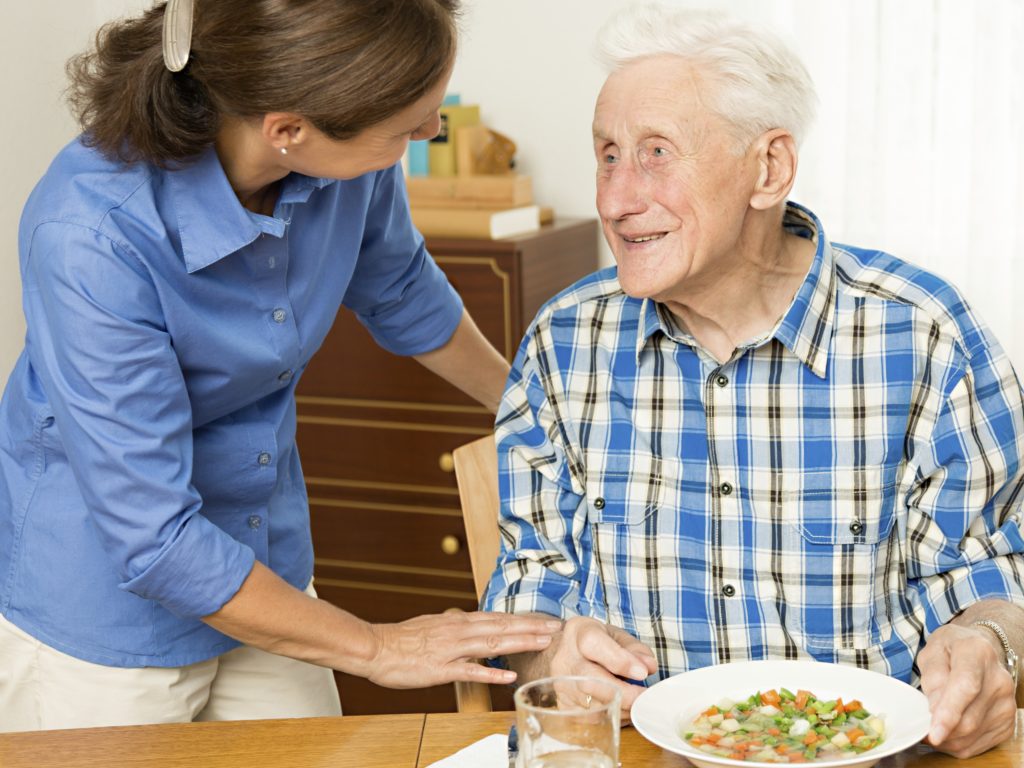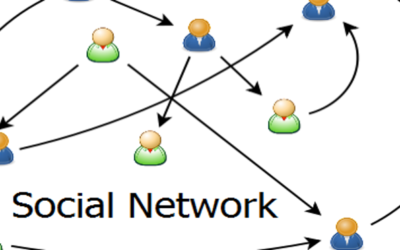What is the Caregiver Burden?
You may have heard about or read the term caregiver burden. You may have wondered what exactly that refers to.
The caregiver burden is a term used to describe the physical, emotional, and financial costs of providing care. It is used to refer to family caregivers who care for a mom, dad or spouse. Caregivers face intellectual, social, financial, and spiritual challenges in their role. Those challenges need to be recognized and supported.
Behaviour Is Challenging
Close to 90% of dementia suffers have behaviours that challenge and upset family caregivers. Many caregivers find themselves lacking either the knowledge to understand the disease or the skills necessary to manage the aggression, depression, delusions or wandering that may come with it.
In addition to being inadequately prepared, there are usually psychological factors at play.
Relationships Change
Your relationship with the person who has dementia will change and this can cause you to feel enormous grief. As the disease progresses, you experience a loss of emotional or physical intimacy. The gamut of emotions you may experience is broad and ranges from denial, anger, fear, sadness, guilt, frustration, and anxiety to helplessness, hopelessness, and feelings of being trapped.
It’s important you recognize these symptoms early and develop coping strategies. Stress that is managed or handled is not harmful. However, unmanaged stress will accumulate and build up and will be expressed in unexpected ways.
If this goes unchecked long enough, it can negatively affect your own health.
Avoid Isolation
Remember, you’re not in this alone. There are choices available to you to help share the care burden and you need to tap into them.
In this post I want to cover the emotional stages you’re likely to encounter on this caregiving journey, along with some self-care strategies and tips.
The Four Stages
There are normally four stages, with each stage broadly defined as follows:
- Stage 1: Less than 10 hours per week – Generally around the time that a person is diagnosed with an illness and needs some help, but many of the symptoms are not yet present.
- Stage 2: More than 10 hours per week – Caregiving duties are starting to turn into a ‘job’ and your time is getting limited. This is where the stress typically starts to set in.
- Stage 3: Getting overwhelmed – The person’s conditions are getting worse and harder to deal with. This is where much of the emotion that has been building becomes too much.
- Stage 4: Caregiver in loss – It’s over, now what? There’s a huge emptiness.
Emotions are spontaneous and a result from a combination of events and the environment. They happen, and you can’t really control what you feel. You can, however, control how you deal with them. Putting good coping strategies in place will help you on this journey.
Stage One
The major emotions associated with Stage 1 are fulfillment, doubt, and anxiety.
Why fulfillment?
The care required in Stage 1 is usually light. This allows you to spend quality time with your mom or dad, time that perhaps you couldn’t spend with them before. At this early stage, the care you provide is normally appreciated by your loved one and you’re still able to live a balanced life.
Doubt and Anxiety
Doubt comes into play when that little voice in your head wonders if you’re doing the right thing. You may feel that you have neither the knowledge or experience to deal with what is to come and this is worrisome. You may also be questioning the safety of your loved one when you are not there. Will they forget to turn off the stove or get distracted and leave a tap running?
Knowing that your loved one has a progressive illness can cause anxiety. While we know the end is inevitable for all of us, this is the time when you need to prepare yourself for the future. Don’t stick your head in the sand!
The Keyword is Ask
The keyword for handling the emotions of Stage 1 is Ask.
Ask your doctor
- What to expect with the disease
- Who else you should be talking to
- What services are available
Ask your lawyer
- What legal documents should be taken care of
- If the will is current
- If power of attorneys are in place
Ask your family
- Who is willing and able to be involved
And most importantly – ask your mom or dad
- What are their desires
Remember this is about them!
Stage Two
Caregivers entering Stage 2 are normally providing more than 10 hours of care per week. Caregiving duties are starting to turn into a ‘job’ and your time is getting limited. At this point, stress typically starts to set in. The major emotions associated with Stage 2 are guilt, frustration, and anxiety.
Guilt
Feelings of guilt start to set in because of the ever-increasing pressure of the care requirement. This is when caregivers begin to question if they’re doing enough. Sometimes they even go as far as to blame themselves for the deterioration in their mom or dad’s condition.
Frustration and Anxiety
With the guilt comes frustration. Despite all the time and effort that is being put into taking care of the person, their condition continues to worsen.
When you add to this that your mom or dad may no longer be able to appreciate the care that is provided, it can be incredibly frustrating and anxiety creeps in. There can be a lot of fear surrounding what is yet to come.
The Keyword is Find
The keyword for handling the emotions of Stage 2 is Find.
Find time for yourself and relax
- schedule time for a walk
Finding time for yourself is not being selfish, it’s being responsible. If you burnout because of stress, then you won’t be able to help anyone.
Find reliable family members to pitch in
- delegate tasks to family, friends, and neighbours.
Getting help with things like errands, appointments, housekeeping, and meal preparation can be a huge relief.
Find community organizations to help you
- available resources can range from public home care, private home care, volunteer programs, and community outreach programs.
Getting outside help in place before you desperately need it is a good idea. There are many organizations that can help, but you need to find the ones that are the right fit for you.
Find joy in your relationship
- no matter how serious the conditions are, there is always some joy in a relationship.
Focus on the positives of your relationship. Build on the good times and definitely enjoy it!
Find forgiveness for any past grievances
- past hurts and grievances can cause deep rifts.
It is important to bring them out, deal with them and put them behind you. This may mean discussing past hurts with your mom or dad, or your siblings.
Being at peace with your mom or dad is important both now and in the future.
Stage Three
In Stage 3 your mom or dad’s condition is getting worse and is harder to deal with. This is when caregivers start to feel overwhelmed and they can no longer easily keep emotions in check.
Becoming Overwhelmed
In addition to the emotions experienced during Stage 2 – guilt, frustration, and anxiety – caregivers start to feel trapped and resentment creeps in. You may feel like your mom or dad is taking all your time and their care is consuming you. This is made worse by feelings of guilt that bubble up when you think of stepping away, even for a short period of time. And, to make matters worse, these emotions usually coincide with them no longer being capable of appreciating your efforts. You’re giving everything of yourself and they simply don’t understand.
The Keyword is Accept
The keyword for coping with your emotions at Stage 3 is Accept.
Accept help that is offered
- if someone offers to help, let go and accept their offer.
You may find it hard to accept help. I sure do. I find my first reaction is if I don’t do it myself, it means I lack love. That is not a healthy way to think. All of us need help and letting someone else help you is a gift to them.
Accept the fact that you need to take care of yourself
- if you don’t take a break, the caring will break you.
Many caregivers fall into the trap of not taking breaks. They end up utterly exhausted and broken. In fact, 70% of caregivers over the age of 70 die before the individual they are taking care of. So self-care is extremely important.
Accept that you cannot heal your loved one
- now more than ever you need to accept your mom or dad’s condition.
While you cannot heal them, you can help them make the most of everything they have. This is a better focus for both of you.
Accept a break
- if someone offers you a break so that you can step away for a short period of time, take it.
You need to accept that there is no way of knowing the exact trajectory of the disease. A break from caregiving will do you a lot of good and you will come back refreshed.
Stage Four
As you pass through the first three stages, your emotions progressively intensify, normally to the point of becoming overwhelming.
A Sense of Loss
Loss characterizes Stage 4. With the passing of your mom or dad comes a huge emptiness. The grieving process is different for each person. We progress through the stages in a nonlinear fashion. Thus your experience of grief will be different from mine. But the major stages of grief are characterized as follows:
Denial
- denial can be an adaptive response that buffers the unexpected shocking news that your mom or dad is going to pass or has passed. As long as you don’t stay in this stage for too long, the initial reaction of disbelief helps prepare you for the loss.
Anger
- anger can take on many forms – it can be directed at the disease, the doctors, towards family and/or friends, at yourself or even at the deceased for leaving you. Losing someone can make people feel very out of control.
Bargaining
- often takes place before the loss when anger doesn’t work to change the situation. This may involve pleading, begging, wishing or praying to God to return things to how they were, promising in return to do more or be a better person. Sometimes the pleading is done with the sick person who is leaving.
Depression
- some symptoms of depression, such as overwhelming feelings of hopelessness, frustration, bitterness, self-pity, numbness, and mourning are normal after getting news about a life-limiting illness or the loss of your mom or dad. Take care not to confuse clinical depression with normal grief.
Acceptance
- recognize that there is a difference between resignation and acceptance. You have to accept the loss, not just try to bear it quietly. Because many people feel like acceptance is giving up, they may try to avoid it for as long as possible. Acceptance can also invoke a great deal of fear because it means you have to live without your mom or dad, as well as create apprehension about building a new life. On the other hand, acceptance can bring a sense of peace. The exhausting battle is over and you can focus your energy on moving forward.
Remember, normal grief is not a form of mental illness. However, if symptoms of depression persist beyond a couple of months, reach out to a mental health professional for assistance.
The Keyword is Allow
The keyword for coping with your emotions at Stage 4 is Allow.
Allow yourself to grieve
- Give yourself permission to feel sad
Allow yourself to reflect
- Take time to think about your experiences and what you gained from them
Allow yourself to be proud of your contributions
- You gave a lot. Be proud that you did.
When work is not paid, we minimize its importance. This attitude can creep into our thoughts about caregiving. The time you spent with your mom or dad is a gift that you gave to them. Be grateful that you could give it.
The Final Keyword is Treasure
This leads us to our last keyword, Treasure. Don’t forget to treasure all the challenges you have overcome; all the memories you have shared; all of your triumphs and victories. Take advantage of any opportunity you have to share your experience with someone who may benefit. This is a great way to pass on the legacy of love you created through your caregiver journey.







0 Comments